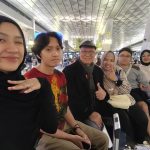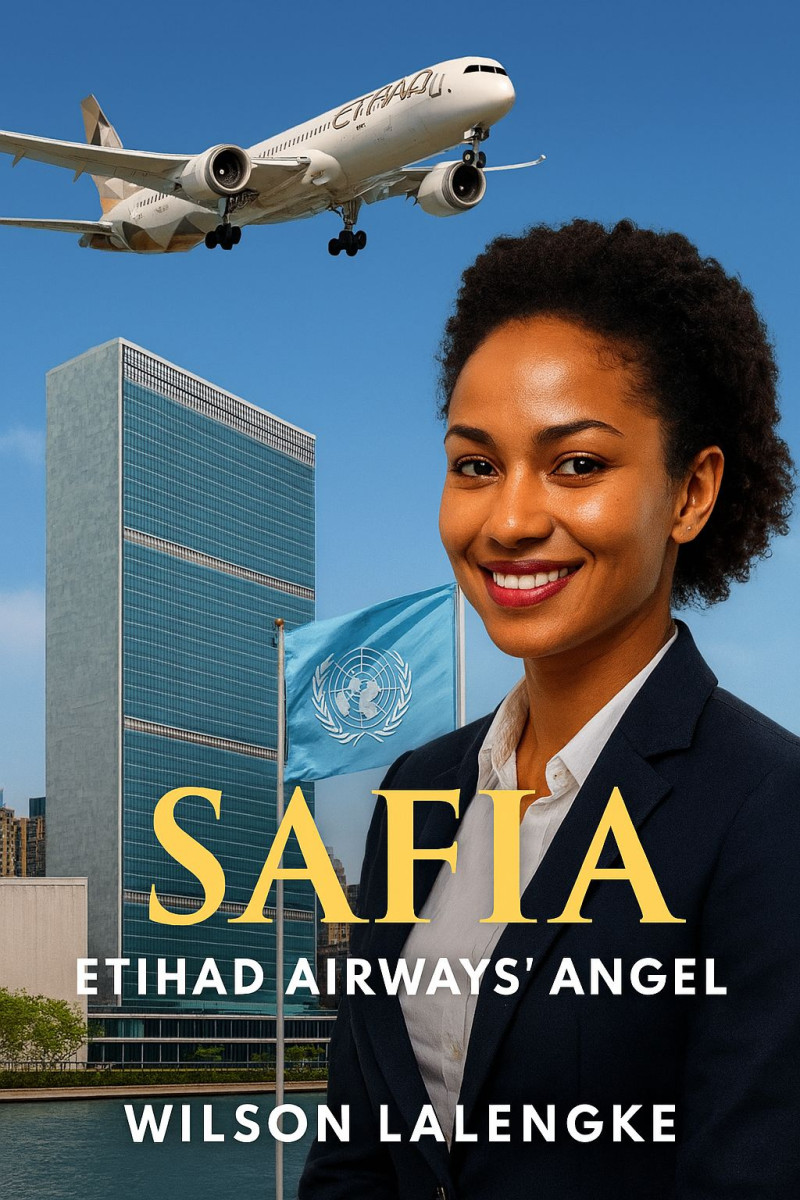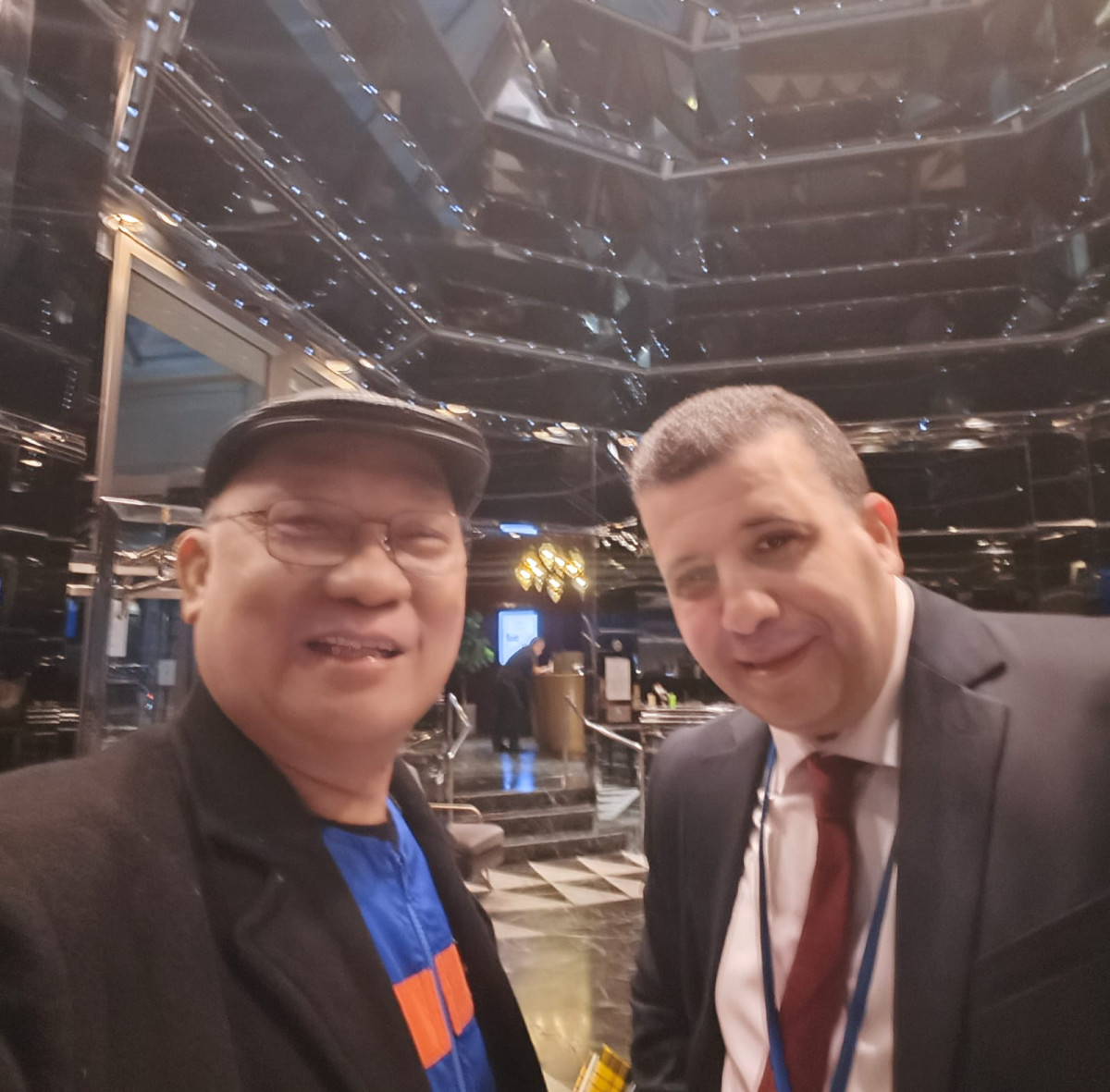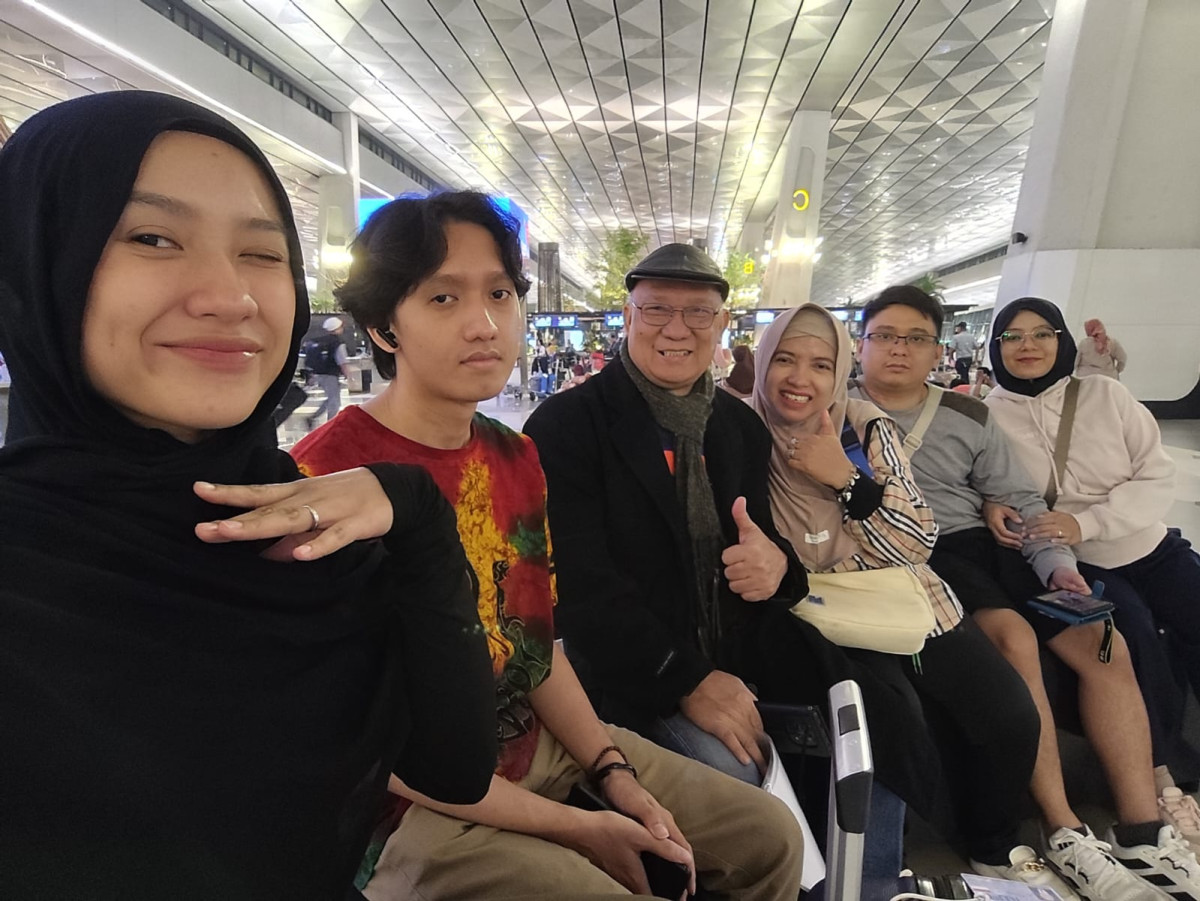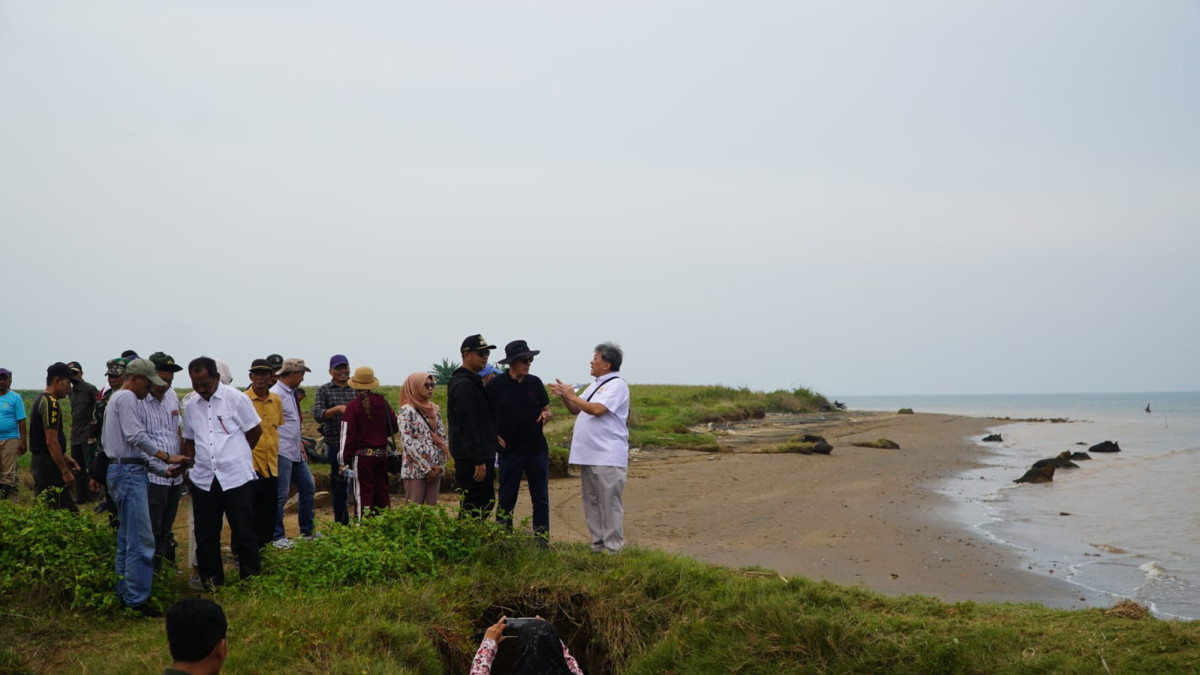
Safia, Etihad Airways’ Angel is a heartwarming tale of grace, resilience, and destiny. Safia, a South African flight attendant living in Abu Dhabi, serves aboard Etihad Airways with unmatched warmth and professionalism. Her quiet strength and radiant smile leave a lasting impression on Wilson Lalengke, a business-class passenger en route to deliver a speech at the United Nations.
Their brief encounter in the sky sparks a deeper connection. Inspired by Wilson’s encouragement, Safia pursues her long-held dream of becoming a diplomat. Despite setbacks and rejections, she perseveres with the support of her family and colleagues. Years later, she earns a position on the UN Conflict Resolution Team.
In a poetic twist of fate, Safia and Wilson reunite at the UN—no longer as passenger and flight attendant, but as respected colleagues and partners in peace. Their story is a testament to the power of kindness, the beauty of dreams, and the unexpected ways lives can intertwine.
Safia, Etihad Airways’ Angel
A Novel
Chapter One: The Sky Between Us
The hum of the engines was constant, like a lullaby stitched into the clouds. Flight EY 003 sliced through the night sky, carrying dreams, secrets, and stories across continents. In the business class cabin, where silence was golden and comfort reigned, Safia Malika moved like a breeze—gentle, precise, and impossibly graceful.
She wore her uniform like a second skin, but it was her smile that passengers remembered. A faint dimple on her left cheek appeared whenever she greeted someone, as if her joy was etched into her very being. Her curly black hair was always tied back neatly, though a few rebellious strands often escaped, framing her face with a softness that belied her discipline.
Born in Cape Town, raised on the rhythms of the Atlantic, Safia had left South Africa for Abu Dhabi with nothing but a suitcase and a stubborn belief in her own resilience. Now, she lived in a modest apartment near the Corniche, where the call to prayer echoed through the alleys and the scent of cardamom drifted from every café. Her life was simple, but her spirit was vast.
On this particular flight, Wilson Lalengke, a seasoned traveler and quiet observer, found himself captivated—not by the luxury of his seat, but by the presence of the woman who seemed to make the air itself more breathable. Safia anticipated his needs before he voiced them, offering tea with a touch of honey, a blanket just as he began to shiver, and a conversation that danced between warmth and wit.
To Wilson, the cabin felt less like a plane and more like a sanctuary. Safia’s attentiveness transformed the sterile space into something intimate, almost sacred. He watched her move, not with the gaze of a man seeking beauty, but with the reverence of someone witnessing grace.
As the hours passed, the flight became a meditation. Wilson, en route to deliver a speech at the United Nations, found himself reflecting not on geopolitics or diplomacy, but on the quiet power of human connection. Safia, without knowing it, had reminded him of something essential: kindness, when offered freely, is the most luxurious service of all.
Chapter Two: Layover of the Heart
The story continues as Safia faces a crossroads—an unexpected letter, a chance encounter in New York, and a decision that could change her life. Meanwhile, Wilson, inspired by her presence, begins to question the path he’s walked for decades. As their lives briefly intertwine, both must confront what it means to serve, to dream, and to belong.
Chapter Three: The Speech Beneath the Surface
The city was electric. Yellow cabs darted between steel towers, steam curled from subway grates, and the Hudson shimmered like a restless mirror. Wilson Lalengke stood at the window of his room at the Millennium Hilton New York One UN Plaza, watching the city breathe beneath him. He had arrived just hours earlier, but something inside him had already changed.
It wasn’t New York that stirred him—it was the flight. Or rather, the presence of one woman on that flight.
Safia.
Her name echoed in his thoughts like a soft refrain. Not because she had said anything profound, but because she had reminded him of something he’d long buried: the quiet dignity of service, the grace in small gestures, the power of being seen.
Wilson had spent decades in the world of diplomacy, policy, and public speaking. He knew how to command a room, how to shape a narrative, how to speak in the language of resolutions and declarations. But now, as he prepared for his address to the Fourth Committee of the United Nations, he found himself rewriting his speech—not with statistics and strategy, but with stories.
He wrote about the flight attendant who made a metal tube in the sky feel like home. He wrote about the invisible labor of kindness, the unspoken strength of those who serve without recognition. He wrote about Safia—not by name, but in spirit—as a symbol of the humanity that diplomacy often forgets.
When he stepped onto the marble floor of the UN Headquarters the next morning, his voice carried something new. Not just authority, but warmth. Not just conviction, but vulnerability.
“We speak often of peace,” he said, “but we forget that peace begins in the smallest places—in a smile offered at 35,000 feet, in a cup of tea handed to a weary traveler, in the dignity of those who serve without applause.”
The room was silent. Not because they disagreed, but because they remembered.
After the speech, Wilson didn’t linger for handshakes or interviews. He walked back to his hotel, sat by the window, and wrote a letter. Not to a government. Not to a committee.
To Safia.
He didn’t know if she’d ever read it. But he needed to say thank you—not just for the flight, but for the reminder that even in a world of power and politics, it is the quiet angels who carry us forward.
Chapter Four: The Quiet Flame
Safia awoke to the soft hum of her apartment’s air conditioning and the golden spill of morning light across her modest kitchen counter. Her shift had ended hours ago, but the flight lingered in her thoughts—not the turbulence or the service routines, but the man in seat 6K.
Wilson Lalengke.
There was something about him. Not romantic, not dramatic—just a quiet presence that had mirrored her own. He had watched her not with expectation, but with appreciation. And in a world where her work was often invisible, that mattered.
She brewed her coffee slowly, savoring the ritual. Her apartment was small, tucked into a quiet corner of Abu Dhabi, but it was hers. Photographs of her family in Cape Town lined the shelf above her desk. A worn copy of _The Prophet_ by Kahlil Gibran sat beside her bed. Her life was stitched together by small joys: the scent of jasmine tea, the rhythm of prayer, the laughter of her neighbors.
Safia had chosen this life deliberately. She had left behind a world of predictability for one of altitude and uncertainty. Every flight was a new story, every passenger a new possibility. But she never expected to be remembered.
Until the letter arrived.
It was waiting for her in the crew lounge, tucked inside a plain envelope with her name written in careful script. She opened it slowly, her fingers trembling slightly.
“You reminded me that diplomacy begins with dignity, and that kindness is not a luxury—it is a necessity. Thank you for making the sky feel like home.”
Safia read the words twice, then folded the letter and held it to her chest. She didn’t cry. She didn’t need to. The warmth inside her was enough.
That evening, she walked along the Corniche, the sea breeze lifting her curls as she watched the sun melt into the horizon. She thought of Wilson, of the speech he must have given, of the lives he touched. And she smiled—not because she had changed the world, but because she had reminded someone that the world could still be gentle.
Safia didn’t seek recognition. She didn’t chase applause. Her heart was a quiet flame—steady, warm, and unwavering. And somewhere over the Atlantic, that flame had lit another.
Chapter Five: A Letter in the Quiet
Safia sat at her small writing desk, the letter from Wilson still resting beside her cup of rooibos tea. The words had stirred something deep within her—not pride, but a quiet affirmation. She had always believed that kindness mattered, even when unnoticed. Now, someone had noticed.
She opened her laptop, the screen casting a soft glow in the dim room. Her fingers hovered over the keyboard for a moment, unsure how to begin. Then, with a breath, she started to write.
Dear Mr. Lalengke,
I hope this message finds you well and grounded after your long journey. I must admit, I was surprised—and deeply moved—to receive your letter. In our line of work, we often meet hundreds of faces, each passing through like clouds. Rarely do we hear from them again. Your words reminded me that even fleeting moments can leave lasting impressions.
I don’t know if I deserve such praise, but I’m grateful that my presence brought you comfort. I simply try to treat every passenger as I would want my own family to be treated—with care, dignity, and a little warmth to soften the edges of travel.
Your speech, though I did not hear it, sounds like it carried the kind of truth we need more of in this world. If my small gestures helped inspire that, then I am honored beyond measure.
Thank you for seeing me—not just as a flight attendant, but as a person. That is a rare gift.
May your work continue to bring light where it’s needed. And may your journeys always be met with kindness.
Warm regards,
Safia M.
Etihad Airways
She read the message once more, then clicked “Send” to email address once Wilson gave on last good by when disembarking. Outside, the city pulsed with life, but inside her apartment, there was a stillness—a moment of connection stretching across oceans.
Safia didn’t know if she’d ever see Wilson again. But in that quiet exchange, something had shifted. She felt seen. And sometimes, that’s all the heart needs.
Waiting can often feel tedious, especially when awaiting a response from someone you’ve been waiting for. Impatiently awaiting Wilson’s reply, Safia quickly followed up on his unanswered email. She seemed unconcerned about whether her email reached its intended recipient or whether it was read.
*Subject:* RE: Thank You (continued)
Dear Mr. Lalengke,
Thank you again for your kind words. I hope you don’t mind me sharing a little more about myself—your last letter made me feel safe enough to do so.
I was born in Cape Town, South Africa, the youngest of four children. My mother was a schoolteacher, and my father worked as a clerk in the city’s municipal office. We didn’t have much, but we had books, laughter, and a deep respect for learning. My parents believed that education was the one inheritance they could give us that no one could take away.
I studied International Relations at the University of Pretoria, with a minor in Linguistics. I’ve always been fascinated by the way words shape worlds—how diplomacy can be both a sword and a balm. My professors used to say I had the heart of a poet and the mind of a negotiator. I took that as a compliment.
After graduation, I applied to several foreign service programs, but life had other plans. My family needed support, and I couldn’t afford to wait for uncertain opportunities. So I moved to Abu Dhabi and joined Etihad Airways. It wasn’t the diplomatic path I imagined, but it became something unexpectedly beautiful. Every flight is a lesson in culture, patience, and human connection. I’ve learned more in the aisles of an aircraft than I ever did in a lecture hall.
Still, the dream remains. One day, I hope to serve my country as a diplomat—perhaps at the United Nations, where you spoke so powerfully. I want to be part of the conversations that shape peace, that protect dignity, that build bridges between nations.
Until then, I’ll keep serving in the skies, quietly collecting stories and moments like yours that remind me why I started dreaming in the first place.
Warmest regards,
Safia M.
Etihad Airways
Being busy always takes up a lot of time. Sometimes, even eating is considered a waste of time. That’s the reality for most hardworking people, including humanitarian workers.
Safia’s wait for an email response was over. It wasn’t words she was waiting for, but genuine attention, evidenced by the reply that arrived in her inbox. The content of the email was important, but whatever the message, it would still strengthen someone with big dreams.
Subject RE: Keep Dreaming, Safia
Dear Safia,
Your letter moved me more than I can express. Thank you for patiently waiting my reply and trusting me with your story. I read every word slowly, as if each sentence carried the rhythm of your heartbeat. You have a rare gift—not just of service, but of soul. And your dream to become a diplomat is not only noble, it is necessary.
Let me tell you something I’ve never shared lightly.
The path to where I stand today was not paved with comfort or applause. It was long. It was brutal. And it tested everything I believed in.
There were years when my voice was silenced. Times when my ideas were dismissed, ridiculed, even punished. I’ve spent nights in jail—not for crimes, but for convictions. I’ve stood alone in courtrooms, in protests, in meetings where I was the only one speaking truth to power. I’ve lost friends, opportunities, and even my own sense of direction more than once.
But every hardship was a lesson. Every setback was a mirror. And every moment of despair was a test of whether I truly believed in the ideals I claimed to stand for.
You see, Safia, the world doesn’t hand us our dreams. It demands that we fight for them. That we bleed for them. That we prove, again and again, that we are worthy of the vision we carry.
And you—you are worthy.
Your education, your empathy, your discipline, your ability to make strangers feel seen—all of these are the makings of a diplomat. Not the kind who hides behind protocol, but the kind who changes rooms simply by entering them.
So I urge you: fight for your dream. Apply again. Knock on doors until your knuckles bruise. Study harder. Speak louder. And when the world tries to tell you that you’re “just” a flight attendant, smile—and let your dimple remind them that angels wear many uniforms.
If ever you need guidance, encouragement, or simply someone to remind you that your dream is valid—I am here.
With deep respect and unwavering belief in your future,
Wilson Lalengke
Absolutely—let’s continue Safia’s inspiring journey as she turns determination into destiny.
Chapter Six: The Ascent
The decision came quietly, like most life-changing moments do. Safia sat on the edge of her bed, Wilson’s letter folded neatly beside her, and whispered to herself, _“It’s time.”_
She reopened her laptop and began the application process for the United Nations. Not once, but again and again. Each submission was followed by silence, then rejection, then another attempt. The forms were long, the requirements daunting. Her resume, though rich in experience, lacked the traditional diplomatic pedigree. But her heart was unwavering.
Her family in Cape Town rallied behind her. Her mother sent voice notes filled with prayers and encouragement. Her siblings helped her revise her essays and polish her credentials. Even her colleagues at Etihad—pilots, crew members, and ground staff—cheered her on, offering quiet nods and whispered “You’ve got this” before each flight.
Months passed. She kept flying. Kept applying. Kept believing.
Then, one morning, as the sun spilled over the Abu Dhabi skyline, her inbox lit up.
> *Subject:* United Nations Recruitment – Offer of Appointment
> _Dear Ms. Safia Malika,_
> _We are pleased to inform you that you have been selected to join the United Nations Conflict Resolution Team as a Junior Expert. Your posting will begin in New York City, effective January 2026.
She stared at the screen, breathless. The words blurred, then sharpened, then blurred again. She laughed. She cried. She knelt in gratitude.
Her journey had not been easy. But it had been real.
She remembered Wilson’s words: _“The world doesn’t hand us our dreams. It demands that we fight for them.”_ And fight she had.
Her final flight as a crew member was bittersweet. Passengers came and went, unaware that the woman serving them was stepping into a new chapter. Her colleagues surprised her with a farewell cake in the crew lounge. The captain gave her a quiet salute.
And when she landed in New York once more—this time not as a flight attendant, but as a UN expert—she walked through the terminal with her head high, her heart full, and her dimple shining.
Safia had not just arrived. She had ascended.
Final Chapter: Full Circle
It was a crisp spring morning in New York City, the kind that made the East River sparkle and the UN Headquarters hum with quiet urgency. Wilson Lalengke walked through the marble corridors, his briefcase in hand, his mind focused on a high-level mediation session. Years had passed since his speech to the Fourth Committee, and his role had evolved—he was now a senior advisor on peacebuilding and civil society engagement.
He turned a corner toward Conference Room 4, scanning the agenda. His eyes paused on a name.
*Safia Malika – Conflict Resolution Expert, UN Secretariat*
He blinked. Could it be?
Inside the room, diplomats murmured over coffee and papers. And then, she entered.
Safia.
No longer the flight attendant in navy blue. She wore a tailored suit, her curls cascading with elegance, her posture poised and commanding. Her dimple still appeared when she smiled—but now it was accompanied by a quiet confidence that filled the room.
Wilson stood, stunned. She saw him, paused, and smiled—not the polite smile of service, but the warm recognition of someone who had once shared a moment that changed everything.
“Mr. Lalengke,” she said, extending her hand. “It’s been a long time.”
He took her hand, and for a moment, the years melted away. “Safia. You’ve arrived.”
She laughed softly. “We both have.”
The meeting began, but something had shifted. They weren’t just colleagues—they were allies. Over the next months, they collaborated on initiatives, co-authored proposals, and led workshops on post-conflict healing. Their synergy was undeniable. Wilson’s wisdom and experience met Safia’s empathy and insight like two rivers converging.
Outside the formalities, they shared quiet dinners, long walks through Central Park, and conversations that stretched into the night. What had begun as a fleeting connection in the sky had become a partnership grounded in purpose.
And though neither spoke of romance, there was something deeper—an unspoken bond forged through resilience, respect, and the belief that kindness could change the world.
One evening, as they stood overlooking the East River, Wilson turned to her and said, “You were never just an angel in the sky. You were always meant to be here.”
Safia smiled, her dimple catching the last light of day. “And you were the one who reminded me to fly.
*The End.*



